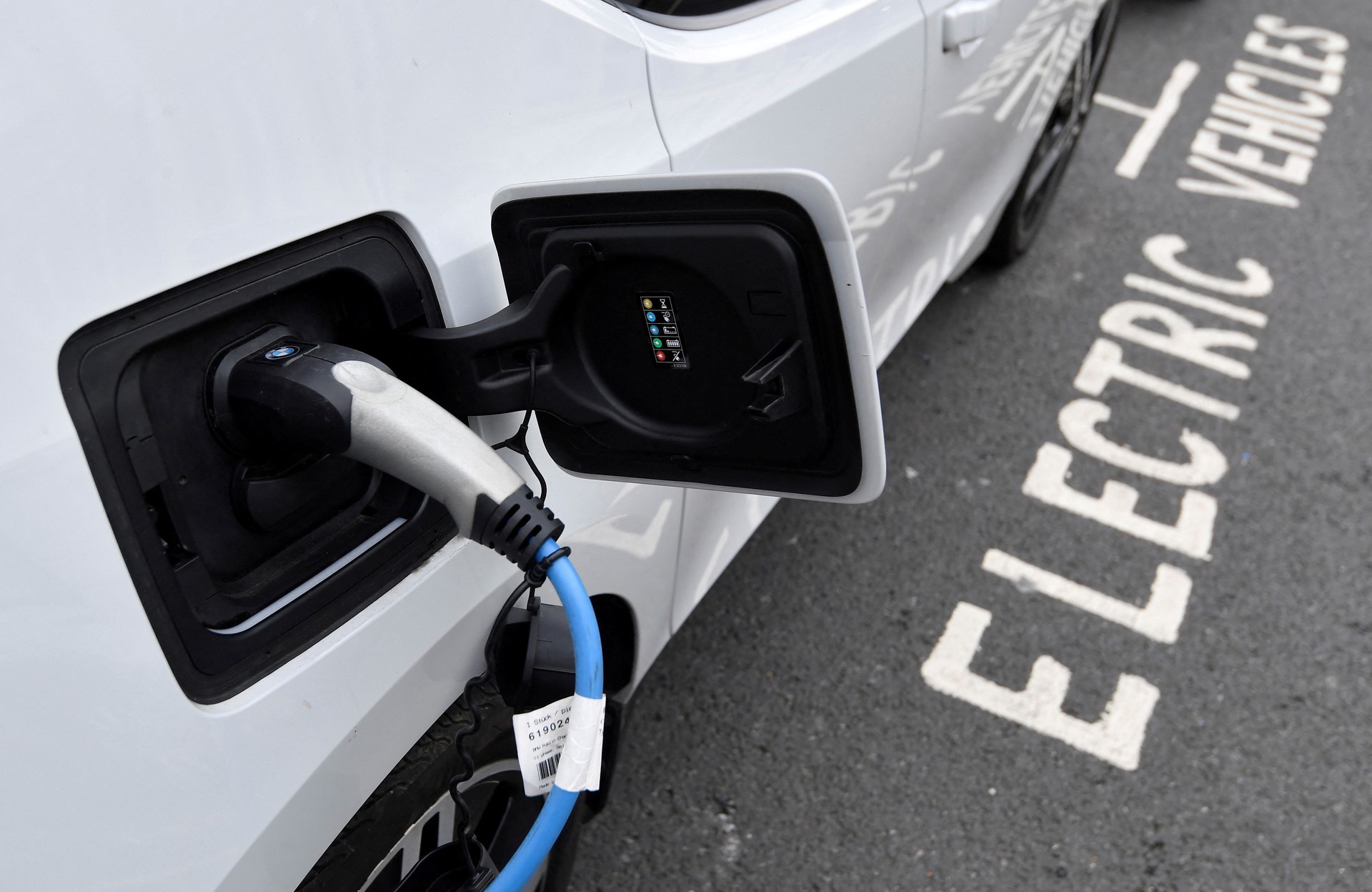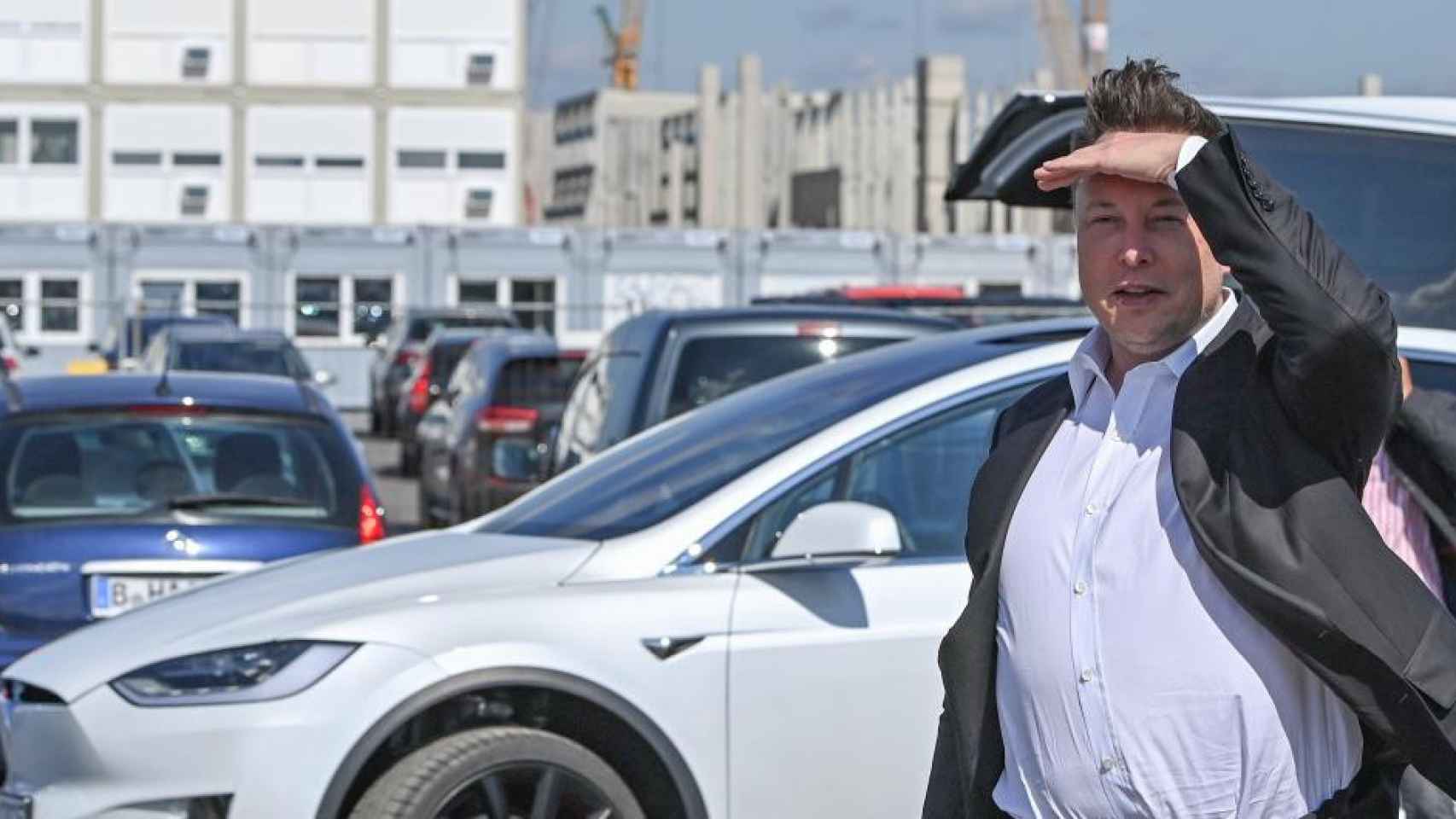Falling battery prices set to narrow gap between EVs, gasoline cars
An electric car is charged at a roadside EV charge point, London, Oct,19, 2021. (Reuters Photo)
August 21, 2024 02:56 PM GMT+03:00
Declining battery prices are poised to revolutionize the EV market, making these vehicles more accessible to a broader audience and encouraging automakers to ramp up production.
Why it matters: The high cost of EVs compared to gasoline cars has been a significant barrier to consumer adoption, slowing down the global shift to electric transportation.
Why EVs are not popular among consumers?
- Global trends: PHEV sales in China surged by 70% in the first seven months of 2024, with BYD reporting strong growth in both BEV and PHEV sales globally. Also, EV sales in the U.S. and Canada grew by 7.1% in July. However, Europe saw a 7.8% decline in monthly EV sales in July, with Germany experiencing a 12% drop in the first 7 months of 2024.
- Consumer hesitation: Despite the environmental benefits, the higher cost of EVs has deterred many buyers, leading to sluggish sales and causing automakers to reconsider their aggressive EV strategies.
- Profitability concerns: The profitability of EVs remains a challenge for automakers, prompting them to scale back investments as they navigate the uncertain market.
Falling battery prices set to narrow gap between EVs, gasoline cars
Will the cost of EVs decrease?
- Battery cost projections: Goldman Sachs forecasts that the average global battery cost will drop by 23% this year, settling at around $115 per kilowatt-hour. This trend is expected to continue, with prices decreasing by an additional 20% by 2025, potentially bringing EV costs in line with gasoline vehicles by 2025-2026 in select markets.
- Tesla's view: Tesla CEO Elon Musk recently noted that the cost of lithium-ion cells used in EV batteries has begun to decline after a significant pandemic-induced surge. The drop in lithium prices, down over 70% last year, is a key factor in this trend.
- Long-term market share: Analysts predict that as battery costs decline, the share of EVs in global automotive sales will rise, with projections of 50% in the U.S. and 68% in the EU by 2030, reflecting a significant shift in consumer preference.
- SK innovation: A spokesperson from South Korean battery producer SK Innovation highlighted the close link between battery prices and the cost of cathode materials, suggesting that a drop in metal prices could further reduce battery costs.
- Material impact: Nickel and copper have played a role in the recent battery price decline, contributing to more affordable EV production.
Global factors increasing EVs popularity in world
- EU and U.K. regulations: Carbon emission targets and a planned ban on internal combustion engine vehicles by 2035 in the EU are expected to drive demand for EVs.
- China's market: Despite weaker demand in Europe, China’s EV market continues to thrive. July saw a 21% global increase in sales of fully electric and plug-in hybrid vehicles, with China contributing significantly with a 31% year-on-year increase in EV sales.
August 21, 2024 02:56 PM GMT+03:00

